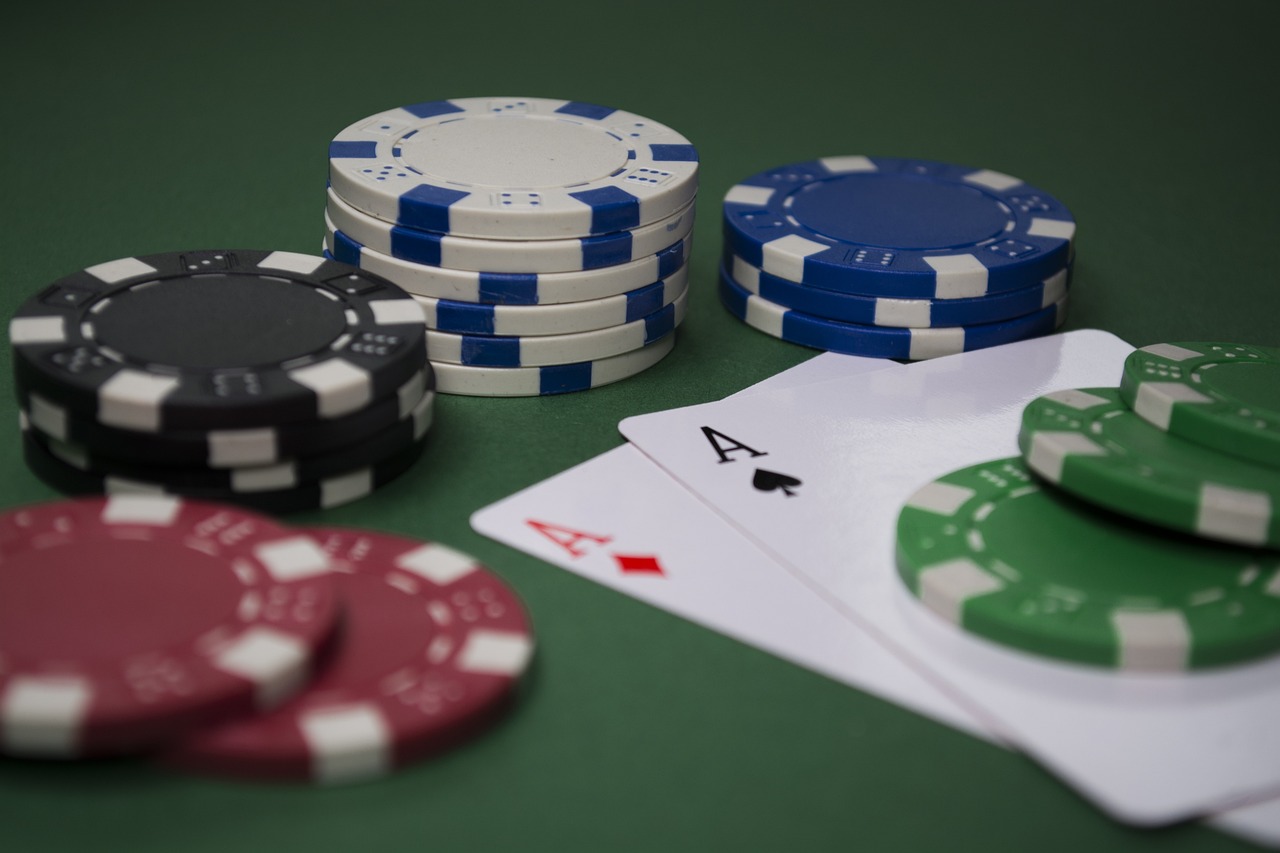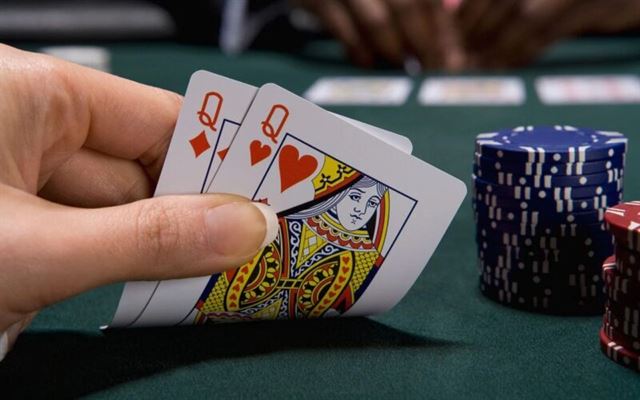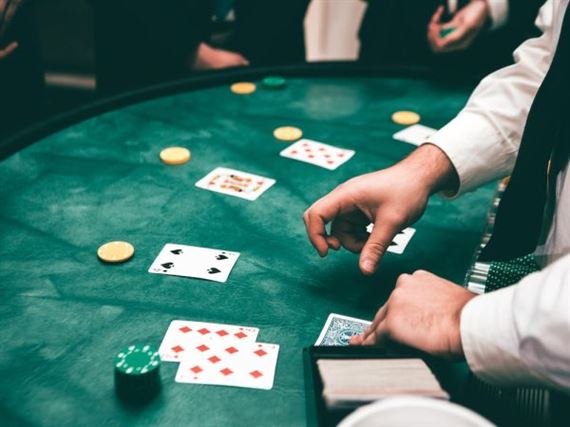In the game of poker, making decisions under pressure is a crucial skill that can greatly impact your success. Understanding the psychology behind betting in poker is essential for making informed choices and maximizing your chances of winning. This article will explore the various factors that come into play when making betting decisions under pressure, including reading opponents, managing emotions, and assessing risk. By delving into the intricacies of poker betting psychology, you can enhance your decision-making abilities and become a more formidable player at the poker table.
The Impact of Psychological Factors on Poker Betting Decisions
The psychological factors that come into play during a poker game can greatly impact a player’s betting decisions. Understanding these factors and how they influence decision-making can give players an edge at the poker table.
One of the most significant psychological factors in poker betting decisions is fear. Fear can cause players to make irrational decisions, such as folding a strong hand or betting too conservatively. This fear often stems from the fear of losing money or the fear of being outplayed by opponents. Overcoming this fear is crucial for making rational betting decisions.
Another psychological factor that affects poker betting decisions is confidence. Confidence can lead players to make bold bets and take risks. However, overconfidence can also be detrimental, causing players to overestimate their abilities and make reckless bets. Finding the right balance between confidence and caution is essential for making successful betting decisions.
Emotional control is another crucial psychological factor in poker betting decisions. Emotions such as anger, frustration, or excitement can cloud a player’s judgment and lead to impulsive betting decisions. It is important for players to remain calm and composed, even in the face of adversity or a big win. Emotional control allows players to make rational decisions based on the cards and the situation at hand.
The ability to read and understand opponents’ behavior is another psychological factor that influences poker betting decisions. Poker is not just about the cards; it is also about reading the players at the table. Observing opponents’ body language, facial expressions, and betting patterns can provide valuable insights into their hand strength and intentions. This information can help players make more informed betting decisions.
Another psychological factor that affects poker betting decisions is the concept of tilt. Tilt refers to a state of emotional and mental frustration that can occur after a bad beat or a series of losses. When a player is on tilt, they are more likely to make irrational and impulsive betting decisions in an attempt to recoup their losses. Recognizing when one is on tilt and taking a break from the game is crucial for avoiding costly mistakes.
Lastly, the concept of risk aversion plays a significant role in poker betting decisions. Some players are naturally risk-averse and tend to bet conservatively, while others are more risk-seeking and are willing to take bigger risks for potentially higher rewards. Understanding one’s risk tolerance and adjusting betting decisions accordingly is essential for long-term success in poker.
In conclusion, the psychological factors that come into play during a poker game can greatly impact a player’s betting decisions. Fear, confidence, emotional control, the ability to read opponents, tilt, and risk aversion all play a role in decision-making under pressure. By understanding and managing these psychological factors, players can make more rational and successful betting decisions at the poker table.
Strategies for Managing Pressure in Poker Betting
When it comes to betting in poker, the pressure can be even more intense. In this section, we will explore some strategies for managing pressure in poker betting and making the best decisions possible.
One of the first things to keep in mind when it comes to poker betting psychology is the importance of staying calm and composed. When the pressure is on, it’s easy to let your emotions get the best of you. However, making impulsive decisions based on emotions can lead to costly mistakes. Instead, take a deep breath and try to approach each betting decision with a clear and rational mindset.
Another strategy for managing pressure in poker betting is to rely on your knowledge and experience. The more you know about the game and the players you are up against, the better equipped you will be to make informed decisions. Take the time to study the game, learn different strategies, and analyze your opponents’ playing styles. This knowledge will give you the confidence to make calculated bets, even when the pressure is high.
In addition to relying on your knowledge, it’s also important to trust your instincts. Sometimes, your gut feeling can be a valuable tool in making decisions under pressure. Of course, this doesn’t mean you should make reckless bets based solely on a hunch. Instead, use your instincts as a guide and combine them with your knowledge and experience to make the best possible decision.
Another strategy for managing pressure in poker betting is to be aware of your own emotions and how they can impact your decision-making. It’s natural to feel nervous or anxious when the stakes are high, but it’s important not to let these emotions cloud your judgment. Take a moment to acknowledge your emotions and then try to set them aside as you make your betting decisions. This will help you stay focused and make rational choices.
Furthermore, it’s crucial to be adaptable and flexible in your betting strategy. In poker, the game can change in an instant, and you need to be able to adjust your approach accordingly. This means being willing to change your betting patterns, adjust your bet sizes, and even fold when necessary. By being adaptable, you can better manage the pressure and make decisions that are in your best interest.
Lastly, it’s important to remember that poker is a game of skill and luck. While you can control your decisions and strategies, you can’t control the cards that are dealt. Sometimes, despite your best efforts, luck may not be on your side. In these situations, it’s important to accept the outcome and not let it affect your future decisions. Dwelling on past losses or bad beats will only cloud your judgment and hinder your ability to make sound betting decisions.
In conclusion, managing pressure in poker betting is a crucial skill for any player. By staying calm and composed, relying on your knowledge and experience, trusting your instincts, being aware of your emotions, being adaptable, and accepting the role of luck, you can make better decisions under pressure. Remember, poker is a game of skill, and by employing these strategies, you can increase your chances of success at the table.
Understanding the Psychology of Bluffing in Poker Betting
Bluffing is a technique used in poker to deceive opponents into thinking you have a stronger hand than you actually do. It is a psychological game within the game, where players try to manipulate their opponents’ thoughts and actions. Bluffing can be a powerful tool when used correctly, but it requires a deep understanding of human psychology.
The first step in understanding the psychology of bluffing is to recognize that humans are naturally inclined to believe what they see. When a player makes a large bet, it sends a signal to their opponents that they have a strong hand. This is known as the “betting tells” and can be used to your advantage. By carefully observing your opponents’ reactions to your bets, you can gain valuable information about the strength of their hands.
However, it is important to note that not all players react the same way to bets. Some may be more easily influenced by large bets, while others may be more skeptical. This is where the concept of “table image” comes into play. Table image refers to the perception that other players have of you based on your previous actions and behavior at the table. If you have a reputation for being a tight player who only bets when they have a strong hand, your opponents are more likely to believe your bets and fold when you bluff.
Another important aspect of bluffing psychology is understanding the concept of “pot odds.” Pot odds refer to the ratio of the current size of the pot to the cost of a contemplated call. In simple terms, it is a measure of the potential reward compared to the risk. When bluffing, it is crucial to consider the pot odds and the likelihood of your bluff being successful. If the potential reward is high and the risk is relatively low, bluffing becomes a more viable option.
Timing is also a crucial factor in bluffing psychology. Bluffing at the right moment can be highly effective, while bluffing at the wrong time can be disastrous. It is important to pay attention to the dynamics of the game and the behavior of your opponents. If they are playing conservatively and folding frequently, it may be a good time to attempt a bluff. On the other hand, if your opponents are aggressive and calling frequently, bluffing becomes riskier and less likely to succeed.
In conclusion, understanding the psychology of bluffing in poker betting is essential for any serious player. By recognizing the natural inclination of humans to believe what they see, observing your opponents’ reactions, and considering pot odds and timing, you can make more informed decisions under pressure. Bluffing is a powerful tool when used correctly, but it requires a deep understanding of human psychology and the dynamics of the game. So, the next time you sit down at the poker table, remember to keep these psychological factors in mind and use them to your advantage.
The Role of Emotional Intelligence in Making Effective Poker Betting Decisions
Emotional intelligence, often referred to as EQ, is the ability to recognize, understand, and manage your own emotions, as well as the emotions of others. In the context of poker, having a high EQ can greatly improve your ability to make effective betting decisions.
One of the key aspects of emotional intelligence is self-awareness. Being self-aware means being able to recognize and understand your own emotions in the moment. In poker, this means being able to identify when you are feeling anxious, frustrated, or overconfident. By being aware of your emotions, you can better control them and prevent them from influencing your betting decisions.
For example, let’s say you are in a high-stakes poker tournament and you have been on a winning streak. You may start to feel overconfident and take unnecessary risks. However, if you are self-aware and recognize this feeling of overconfidence, you can take a step back and reassess your betting strategy. This can help you avoid making impulsive decisions that could cost you the game.
Another important aspect of emotional intelligence is empathy. Empathy is the ability to understand and share the feelings of others. In poker, this means being able to read your opponents and understand their emotions. By being empathetic, you can gain valuable insights into their betting patterns and make more informed decisions.
For instance, if you notice that one of your opponents is showing signs of nervousness, such as fidgeting or avoiding eye contact, you may infer that they have a weak hand. This information can help you decide whether to bet aggressively or fold. By being able to empathize with your opponents, you can gain a competitive edge and increase your chances of winning.
In addition to self-awareness and empathy, emotional intelligence also involves self-regulation. Self-regulation is the ability to control and manage your own emotions. In poker, this means being able to stay calm and composed, even in high-pressure situations.
When the stakes are high and the pressure is on, it can be easy to let your emotions get the best of you. However, by practicing self-regulation, you can maintain a clear and focused mind, allowing you to make rational and calculated betting decisions.
To improve your self-regulation skills, it can be helpful to practice mindfulness techniques, such as deep breathing or meditation. These techniques can help you stay present in the moment and prevent your emotions from taking over.
In conclusion, emotional intelligence plays a crucial role in making effective poker betting decisions. By being self-aware, empathetic, and able to self-regulate, you can better control your emotions and make more rational choices. So, the next time you find yourself at the poker table, remember to tap into your emotional intelligence and make decisions that will lead to success.






